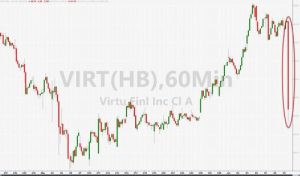Interview 8.8.21 #darkpools @CNBC erase clip. 8.10.21 @andrewrsorkin “conspiracy theories” “Don’t make much sense” Please restore clip @CNBC & let @GaryGensler words speak for himself. Silence is the same as complicit @MelissaLeeCNBC @jimcramer @cvpayne https://t.co/SU5Sg3LGW8 pic.twitter.com/GXj39RS6Z7
— Dragon Breath (@elon55447676) August 11, 2021
Tweet by CNBC’s Fast Money on Twitter
TweetHere is the number one thing the SEC should be doing to level the trading field for investors, according to former Citadel trader and Urvin CEO. @dlauer pic.twitter.com/MrUqIW3QQu
— CNBC's Fast Money (@CNBCFastMoney) August 4, 2021
Article: China Pushes Back Against Threat Of Inflation – Analysis
Article - MediaChina Pushes Back Against Threat Of Inflation – Analysis
Michael Lelyveld, 19 June 2021
 China’s government has suffered a setback in its campaign against inflation as consumer prices accelerated last month despite pressure on producers to keep commodity costs down.
China’s government has suffered a setback in its campaign against inflation as consumer prices accelerated last month despite pressure on producers to keep commodity costs down.
On June 9, the National Bureau of Statistics (NBS) reported that the consumer price index (CPI) for May rose 1.3 percent from a year earlier, quickening from the 0.9-percent pace the month before. Continue reading “Article: China Pushes Back Against Threat Of Inflation – Analysis”
Matt Taibbi: Let the Apes Have Wall Street
Article - Media Let the Apes Have Wall Street
Let the Apes Have Wall Street
Matt Taibbi, 10 June 2021
The much-publicized war over “meme stocks” drags a longstanding Wall Street ripoff out of the shadows, to hilarious results
On CNBC’s Fast Money last week, anchor Melissa Lee appeared to mention the unmentionable. She was talking with Tim Seymour, CEO of Seymour Asset Management, who made offhand mention of the hedge funds shorting now-infamous stocks like AMC and GameStop. “Look, there are a lot of short sellers out there who have been borrowing stock they didn’t have,” Seymour said.
“Naked shorts, yeah,” said Lee.
Article: SEC Launches Review Of High-Frequency Traders’ Market Abuses
Article - Media SEC Launches Review Of High-Frequency Traders’ Market Abuses
SEC Launches Review Of High-Frequency Traders’ Market Abuses
Tyler Durden, 09 June 2021
Nearly 8 years have passed since Michael Lewis published “Flash Boys”, raising awareness of the relatively new practice of high-frequency trading and its transformative impact on markets, allowing the most technologically-advanced traders to effectively see a picture of the market that’s nanoseconds ahead of what their non-NFT peers see, giving them a massive advantage.
Now, the SEC is finally considering changing the rules of how stocks are priced and traded to stop exchanges from incentivizing brokers (nowadays, particularly retail trading brokerages that have seen an explosion of activity in the past couple of years).
Tweet by Bob Pisani on Twitter – SEC Chair Gary Gensler V
TweetSEC Chair Gary Gensler @PiperSandler Exchange Conf:
Payment for order flow raises a number of important questions. Do broker-dealers have inherent conflicts of interest? If so, are customers getting best execution in the context of that conflict?
@SEC_News @CNBC— Bob Pisani (@BobPisani) June 9, 2021
Tweet by Bob Pisani on Twitter – SEC Chair Gary Gensler IV
TweetSEC Chair Gary Gensler @PiperSandler Exchange Conf:
Gamification of trading has features that may encourage investors to trade more, leading to more payment for order flow for the brokers. more active trading may result in lower returns for the average trader.@SEC_News @CNBC— Bob Pisani (@BobPisani) June 9, 2021
Tweet by Bob Pisani on Twitter – SEC Chair Gary Gensler III
TweetSEC Chair Gary Gensler @PiperSandler Exchange Conf: public exchanges account for only 53% of trading volume. 9% from dark pools, 38% from off-exchange wholesalers. Exchanges compete to offer best price, but wholesalers use a less competitive benchmark.@SEC_News @CNBC
— Bob Pisani (@BobPisani) June 9, 2021
Tweet by Bob Pisani on Twitter – SEC Chair Gary Gensler II
TweetSEC Chair Gary Gensler @PiperSandler Exchange Conf:
there are signs hat the NBBO [National Best Bid and Offer] is not a complete enough representation of the market with half of the trading interest either in dark pools or is internalized by wholesaler.@SEC_News @CNBC— Bob Pisani (@BobPisani) June 9, 2021
Tweet by Bob Pisani on Twitter – SEC Chair Gary Gensler
TweetSEC Chair Gary Gensler @PiperSandler Exchange Conf:
We now have the technology to further shorten the settlement cycles, not only to T+1, but even to same-day settlement — T+0 or “T+evening. Shortening the settlement cycle could reduce costs and risks.
@SEC_News @CNBC— Bob Pisani (@BobPisani) June 9, 2021
Article: Meme Stocks Mania: What Is ‘Naked Shorting’ and Why Is It Trending on Twitter?
Article - MediaMeme Stocks Mania: What Is ‘Naked Shorting’ and Why Is It Trending on Twitter?
William White, 07 June 2021
 Naked shorting is trending on Twitter (NYSE:TWTR) today and it looks like there’s no end in sight to the meme stock mania as users react to the news that kicked this all off.
Naked shorting is trending on Twitter (NYSE:TWTR) today and it looks like there’s no end in sight to the meme stock mania as users react to the news that kicked this all off.
All of the excitement around naked shorting started after CNBC host Melissa Lee mentioned that the practice was taking place with shares of AMC Entertainment (NYSE:AMC) stock. The host said the following while discussing the matter.
“There’s a lot of people, a lot of short sellers out there borrowing stock they didn’t have.” Continue reading “Article: Meme Stocks Mania: What Is ‘Naked Shorting’ and Why Is It Trending on Twitter?”
Tweet by Keubiko on Twitter
Tweet“Naked shorts” coming up on CNBC after the break. pic.twitter.com/96UTHBwZJN
— Keubiko (@Keubiko) June 7, 2021
Article: $100 million New Jersey deli: Ex-Trump tax lawyer owned shell company created by mystery investors
Article - Media, Publications$100 million New Jersey deli: Ex-Trump tax lawyer owned shell company created by mystery investors
Dan Mangan, 11 May 2021
 Shell companies sure make strange bedfellows.
Shell companies sure make strange bedfellows.
A New York real estate tax lawyer — who did work for former President Donald Trump decades ago — in 2011 purchased a shell company whose creators later became key investors in a mystery $100 million company that owns just a small New Jersey deli, records show.
The shell company — Europa Acquisition I Inc. — was one of eight shell entities set up in 2010 by Peter Reichard and Peter Coker Sr., the North Carolina-based investors in deli owner Hometown International. Continue reading “Article: $100 million New Jersey deli: Ex-Trump tax lawyer owned shell company created by mystery investors”
Article: “A Gigantic Clusterf**k”: How Morgan Stanley Avoided $10BN In Archegos Losses By Selling First
Article - Media, Publications“A Gigantic Clusterf**k”: How Morgan Stanley Avoided $10BN In Archegos Losses By Selling First
TYLER DURDEN, 07 April 2021
One week ago, in our initial take on the biggest hedge fund collapse since LTCM, we explained that – in our view – the catalyst for the failure of the Archegos hedge fund, which had as much as 10x leverage allowing it to hold some $100BN in positions, was Morgan Stanley and Goldman breaking ranks with their fellow prime brokers, and sparking the biggest margin call since Lehman and AIG.
Turns out we were right. Continue reading “Article: “A Gigantic Clusterf**k”: How Morgan Stanley Avoided $10BN In Archegos Losses By Selling First”
Article: Fraudsters Siphon $100 Million In COVID Relief Through Online Investment Platforms
Article - Media, PublicationsFraudsters Siphon $100 Million In COVID Relief Through Online Investment Platforms
PYMNTS, 30 March 2021

Scammers stealing from government-funded pandemic relief programs have found a new trick — opening accounts with at least four online investment platforms, CNBC reported Monday (March 29).
Law enforcement officials say digital platforms are an easy way to dump money into stolen identity accounts.
Authorities say over $100 million in fraudulent funds reportedly passed through investment accounts in the time since Congress passed the CARES Act last March.
Among the platforms allegedly used by thieves are Robinhood, TD Ameritrade, E-Trade and Fidelity, according to law enforcement.
“The thieves are loving this stuff. This has been the financial crime bonanza act of 2021,” said Charles Intriago, a money-laundering expert and former federal prosecutor, according to CNBC. Continue reading “Article: Fraudsters Siphon $100 Million In COVID Relief Through Online Investment Platforms”
